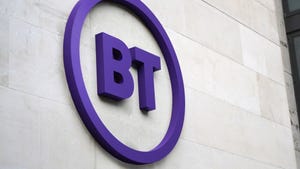Nearly 18 months ago, Informa Telecoms & Media reported that the European Commission was preparing to float the idea that broadband should be designated as a "universal service", that is, made available and affordable to even the most disadvantaged in society. At the time, experts predicted that the plan could result in an embarrassing PR battle for Europe's operators, which were likely to oppose such a proposal because of the costs involved. Last month, the Commission finally published its green paper, yet few politicians, consumer groups or technology advocates have raised their voices in support of the cause. The problem, it seems, is that they are locked in another PR battle that is embarrassing for all the wrong reasons.
October 22, 2008
By Rob Gallagher
Nearly 18 months ago, Informa Telecoms & Media reported that the European Commission was preparing to float the idea that broadband should be designated as a “universal service”, that is, made available and affordable to even the most disadvantaged in society. At the time, experts predicted that the plan could result in an embarrassing PR battle for Europe’s operators, which were likely to oppose such a proposal because of the costs involved. Last month, the Commission finally published its green paper, yet few politicians, consumer groups or technology advocates have raised their voices in support of the cause. The problem, it seems, is that they are locked in another PR battle that is embarrassing for all the wrong reasons.
In short, our so-called champions have forgotten about those left behind by the first broadband revolution and moved on to the Next Big Thing: next-generation access (NGA). Admittedly, much has changed in the past year and a half. In mid-2007, few operators had committed to, let alone rolled out, NGA infrastructure on any meaningful scale. Then, month by month, national incumbents announced plans to replace vast swathes of their legacy copper networks with fibre-to-the-x (FTTx).
Politicians in neighbouring nations, fearful that their economies would somehow be “left behind”, have applied pressure to push through similar upgrades. Some have urged regulators to grant concessions to encourage incumbents to invest in fibre. Others have committed to provide multi-million-euro packages to part-fund deployments. One columnist for a well-known UK newspaper has even suggested that government funding for a national rollout in the UK could be the “Big Idea” Gordon Brown needs to win the next general election.
The problem is that no one really knows exactly how faster broadband networks will benefit nations and citizens. Fibre-to-the-home is well-established in South Korea, yet its presence seems to have had little effect on the country’s productivity or economic health, according to an academic who has been conducting a global study of such connections. In fact, one of the few benefactors he could identify was South Korea’s thriving online-gaming industry, creators of such educational titles as Crazyracing Kartrider and Lineage II: The Chaotic Throne.
The lucrative entertainment market is also one of the main reasons operators elsewhere want to upgrade to NGA. FTTx is only way they can offer high-definition TV and films in competition with their cable- and satellite-TV rivals, many of which are enjoying increasing success on the operators’ home turf, broadband and telephony. Whatever your opinion of the educational value of TV and video, it is difficult to see how it will be increased simply by being in a higher resolution.
NGA advocates suggest that market forces will ensure the rapid emergence of a number of other FTTx-specific applications with a more direct impact on a nation’s social and economic health. These could include virtual doctors’ appointments and other “e-health” services, and data-intensive forms of teleworking such as video conferencing and so-called “cloud computing”. But questions remain about how popular these applications will ultimately prove.
What is clear is that a multitude of services are available via broadband today that are very useful to citizens, economies and governments. And policy-makers need to understand that those without broadband are in most need of being able to access them. For one, citizens can interact with a vast array of government services online, covering health, education, employment, tax and benefits. Second, banks, utilities, operators and other businesses are increasingly offering better customer service and discounts to customers who deal with them online.
Access to these public- and private-sector services is particularly important to the poor, the elderly, the disabled and those living in rural areas. They may not be able to afford the journeys or calls to deal with these organisations otherwise, particularly as both governments and businesses look to close local branches in order to cut costs. Technically speaking, most public- and private-sector services are perfectly usable via dial-up. But given that many ISPs began pricing broadband at a lower rate to encourage customers to upgrade, dial-up is actually less affordable.
In Western Europe alone, more than 36% of households do not have broadband, a figure that becomes much larger if you look at low earners, the poorly educated and people living in rural areas. How far the market will go to develop the tariffs, subsidise the equipment and promote IT literacy to reach these potential customers remains to be seen. The Commission is open to hearing all stakeholders’ views throughout 2009 before deciding whether concrete proposals should be made to update its Universal Service Directive in 2010.
Read more about:
DiscussionYou May Also Like






.png?width=300&auto=webp&quality=80&disable=upscale)


_1.jpg?width=300&auto=webp&quality=80&disable=upscale)


.png?width=800&auto=webp&quality=80&disable=upscale)